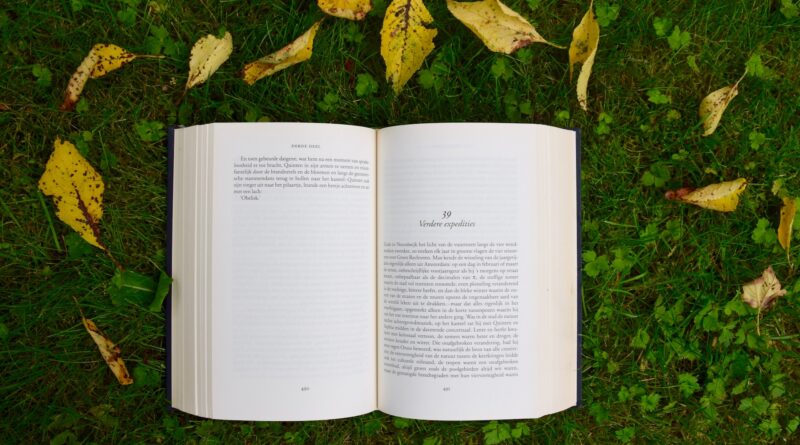Silenced Voices: Ripples of Book Ban
Silenced Voices: Ripples of Book Ban
Sigy George
The written word, a conduit for the human experience, has long held a central place in our society. Books, with their power to inform, enlighten, challenge, and inspire, serve as windows into diverse worlds of thought and imagination. However, throughout history, the freedom to access and explore this vast literary landscape has been challenged by the spectre of book bans, a form of censorship that seeks to restrict or eliminate certain works from circulation. While the arguments in favor of book bans often revolve around protecting children from perceived harm or maintaining societal norms, their side effects ripple across multiple facets of our world.
—Book bans cast a long shadow over the fundamental principles libraries represent—
1.1 Impact on Children:
The impact of book bans on children is perhaps one of the most profound and concerning aspects of this issue. Children, in their formative years, are particularly vulnerable to the consequences of restricted access to literature. Book bans can exert a profound influence on their intellectual and emotional development, with ramifications that extend far into adulthood.
- Stifling Critical Thinking: One of the primary casualties of book bans is the stifling of critical thinking skills in young minds. Literature, with its diverse array of perspectives and ideas, serves as a crucible for the development of analytical thinking. By limiting exposure to a narrow range of viewpoints and ideas, book bans inhibit the cognitive growth that comes from critically evaluating and synthesizing information from various sources. This not only impedes the ability to think independently but also hampers the development of problem-solving skills, which are crucial for success in education and later in life.
- Emotional Suppression: Banning books can also have an adverse impact on the emotional growth of children. Literature often addresses difficult and sensitive themes and situations that are part of the human experience. By shielding children from these realities, book bans may inadvertently suppress emotional development. Exposure to literary narratives that deal with adversity, loss, discrimination, and other challenging topics can help children develop emotional resilience, empathy, and a deeper understanding of the world around them. Deprived of these experiences, children may struggle to cope with complex emotions as they mature.
- Reduced Empathy: Literature, with its capacity to transport readers into different cultures, experiences, and perspectives, serves as a potent tool for nurturing empathy and understanding. Book bans, by limiting access to such diverse voices, deprive children of the opportunity to walk in the shoes of others. Exposure to characters from different backgrounds, ethnicities, and life circumstances promotes empathy by enabling children to relate to and understand the experiences of those unlike themselves. This not only fosters a more compassionate and inclusive society but also equips children with the skills to navigate an increasingly diverse and interconnected world.
 1.2 Impact on Schools:
1.2 Impact on Schools:
Book bans wield a substantial influence on the educational landscape, affecting not only what students read but also the quality and diversity of their education. The repercussions of such bans extend to teachers, students, and the overall educational system.
- Diminished Educational Quality: One of the most immediate and tangible impacts of book bans on schools is the diminished quality of education. Literature has long been recognized as a powerful teaching tool, offering students the opportunity to engage with complex themes, diverse perspectives, and profound ideas. When certain books are banned or restricted, educators lose valuable resources for fostering critical thinking and analytical skills among their students. The banishment of thought-provoking literature from classrooms deprives students of the chance to explore complex issues, grapple with moral dilemmas, and develop a deeper understanding of the human condition. Consequently, the overall educational quality suffers, as students are denied the intellectual richness that literature can provide.
- Curriculum Restriction: Book bans also exert a constraining influence on curriculum choices. When certain books are banned or discouraged, it often leads to a narrowing of the curriculum. This limitation, in turn, restricts students’ exposure to a diverse array of ideas and perspectives. A balanced and comprehensive education should encompass a wide range of voices and viewpoints, enabling students to develop a nuanced understanding of the world. Bans on books prevent this, creating a curriculum that is less reflective of the diversity of thought and experiences that exist in society.
- Chilling Effect: Beyond the direct impact on the books that are banned, there is a chilling effect on teachers. Fear of potential controversy, parental objections, or administrative reprisals may discourage educators from engaging with important but contentious topics. Teachers, who play a vital role in fostering critical thinking and open dialogue, may self-censor to avoid controversy or conflict. This stifling of academic freedom not only diminishes the quality of education but also undermines the principles of free expression and open discourse that are fundamental to a democratic society.
1.3 Impact on Libraries:
Libraries have historically been bastions of intellectual freedom, serving as repositories of knowledge and champions of open access to information. Book bans, however, cast a long shadow over the fundamental principles libraries represent, impacting their ability to provide diverse and unbiased resources to the public.
- Freedom of Information: At the heart of libraries lies the principle of intellectual freedom—an unwavering commitment to ensuring that individuals have access to a wide spectrum of ideas, perspectives, and knowledge. Banning books directly contradicts this foundational principle, as it restricts the freedom of information and limits access to certain ideas or viewpoints. Libraries, as guardians of knowledge, become caught in a dilemma when faced with book bans, forced to balance their mission of providing information with external pressures to censor certain materials. This tension undermines the very essence of libraries as beacons of intellectual freedom.
- Collection Censorship: The challenge of deciding which books to retain or remove due to bans creates a phenomenon known as “collection censorship.” Libraries must grapple with the difficult task of curating their collections in a way that reflects a diverse range of voices and perspectives while also conforming to legal and community standards. In the process, valuable literary works may be removed or excluded, depriving library patrons of access to a well-rounded and inclusive collection. This loss of diverse voices in library collections not only diminishes the richness of available resources but also hampers libraries’ ability to cater to the diverse needs and interests of their communities.
- Impact on Marginalized Communities: Book bans often disproportionately affect marginalized communities. Works that shed light on historically marginalized voices and experiences may be the first to be targeted for censorship. Consequently, the erasure of these narratives from library collections can perpetuate inequality and hinder the ability of these communities to find representation and validation in the literary world. Libraries, as champions of inclusivity and diversity, find themselves in a paradoxical situation when they must confront the removal of materials that speak to the experiences of marginalized groups.
1.4 Impact on Society
The consequences of book bans reverberate throughout society, touching upon the very foundations of democracy, discourse, and freedom.
a. Erosion of Democracy: Book bans pose a significant threat to democratic values. Democracy thrives on the free flow of information and the unfettered exchange of ideas. When certain books are banned or restricted, it fundamentally restricts access to information and hinders the open discourse that is essential to a democratic society. An informed and engaged citizenry relies on diverse sources of information to make well-informed decisions, and book bans undermine this process. Thus, book bans constitute an erosion of democratic principles, as they limit the ability of citizens to access a wide range of perspectives and make informed choices.
b. Increased Polarization: Banning books can exacerbate societal polarization by silencing opposing viewpoints. In a healthy democracy, differing perspectives should be openly discussed and debated. Book bans, however, create an environment where certain ideas or perspectives are suppressed, making it increasingly difficult for individuals to engage in constructive dialogue and find common ground. As a result, society becomes more polarized, with individuals retreating into echo chambers that reinforce their preexisting beliefs, exacerbating divisions and undermining the spirit of compromise and collaboration that is crucial to a functional democracy.
Book bans restrict the intellectual and emotional growth of children, stifling critical thinking, suppressing emotional development, and reducing empathy. In schools, they diminish educational quality, narrow curriculum choices, and create a chilling effect on teachers who fear discussing important but contentious topics. Libraries, traditionally guardians of intellectual freedom, grapple with the erosion of this principle, collection censorship, and potential loss of public trust.
To counter these side effects, it is imperative to nurture a climate of intellectual freedom and open dialogue. By upholding the principles of diversity, inclusivity, and the free exchange of ideas, we can protect the foundations of our democracy and ensure a more informed, tolerant, and democratic society. Recognizing the far-reaching consequences of book bans underscores the importance of preserving access to diverse literature and promoting the open exploration of ideas, ultimately contributing to a more enlightened and democratic future for all.
In conclusion, the side effects of book bans cast a shadow over the very pillars of our society. The impact of these bans on children, schools, libraries, culture, and society at large is pervasive and profound.
References
Engel, Tyler. “Overzealous: The Harm Caused by Parental and Administrative Censorship of Books in an Intellectually Free Education.” (2023).
Friedman, Johnathan, and N. F. Johnson. “Banned in the USA: The growing movement to ban books.” PEN America. Retrieved April 7 (2022): 2023.
Harris, Elizabeth A., and Alexandra Alter. “Book ban efforts spread across the US.” The New York Times 30 (2022).
Hill, H. (2023) 23 banned books you should probably read right now, Reader’s Digest. Available at: https://www.rd.com/list/banned-books/ (Accessed: 03 October 2023).
Jaeger, Paul T., et al. “The urge to censor: raw power, social control, and the criminalization of librarianship.” The Political Librarian 6.1 (2023).
Lycke, Kara, and Thomas Lucey. “The Messages We Miss: Banned Books, Censored Texts, and Citizenship.” Journal of Social Studies Education Research 9.3 (2018): 1-26.
Oliver, D. (2023) What happens to our culture when books are banned: ‘A chilling effect’, USA Today. Available at: https://www.usatoday.com/story/life/health-wellness/2023/02/22/book-bans-what-happens-culture/11262643002/ (Accessed: 26 September 2023).
Version of ‘Anne Frank’ removed from Florida High School Library after parent complaint (2023) USA Today. Available at: https://www.usatoday.com/story/entertainment/books/2023/04/07/anne-frank-book-pulled-from-florida-library/11622644002/ (Accessed: 01 October 2023).
Cite this article in APA as: George, S. Silenced voices: Ripples of book ban. (2023, October 12). Information Matters, Vol. 3, Issue 10. https://informationmatters.org/2023/10/silenced-voices-ripples-of-book-ban/
Author
-
I am a high school librarian with over 10 years experience in several school in Delhi. I have worked across boards like International Baccalaureate, IGCSE, and CBSE. My passion is writing and research about academic library, mainly school library.
View all posts





